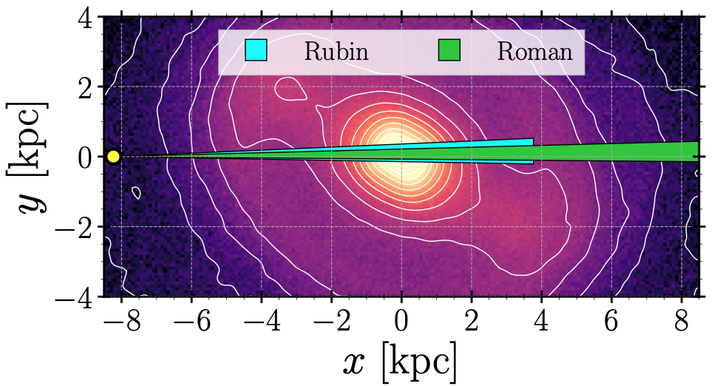Maximizing science return by coordinating the survey strategies of Roman with Rubin, and other major facilities

Abstract
[Abridged] The Nancy Grace Roman Space Telescope will be one of several flagship survey facilities operating over the next decade starting ∼2025. The deep near-IR imaging that Roman will deliver will be highly complementary to the capabilities of other survey telescopes that will operate contemporaneously, particularly those that can provide data at different wavelengths and messengers, or different time intervals. Combining data from multiple facilities can provide important astrophysical insights, provided the data acquisition is carefully scheduled, and careful plans are made for appropriate joint data analyses. In this White Paper, we discuss the broad range of science that would be enabled by coordinating Roman observations of the Galactic Bulge with those of the Vera C. Rubin Observatory. Specifically, we discuss how Roman’s characterization of lensing events caused by exoplanets, stellar systems and stellar remnants can be enhanced by data from Rubin. The same data will also be highly advantageous for the determination of stellar properties, and for distinguishing exoplanetary transits. It will enable more accurate period-color-luminosity relationships to be measured for RR~Lyrae throughout the Milky Way Bulge and Bar, probing galactic structure and dynamics. But we stress that this is only a sample of the full potential and advocate for a more complete study to be made as a joint effort between these major projects. We note that we do not suggest any changes beyond the established Science Requirements for the RGBTDS, in terms of survey footprint or filter selection.